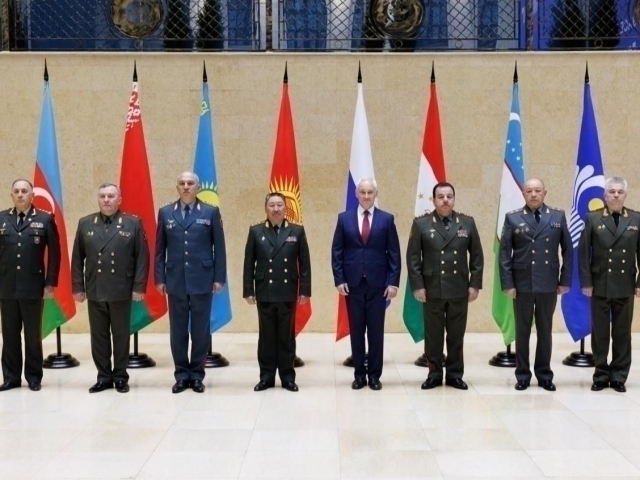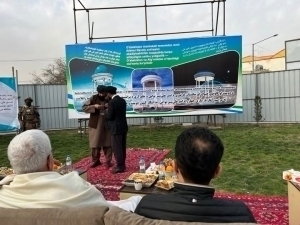Uzbekistan’s defense minister participates in CIS council in Moscow
Local
−
12 November 2024 6618 2 minutes
On November 12, Uzbekistan’s Minister of Defense, Bahadir Kurbanov, attended the meeting of the Council of Defense Ministers of the Commonwealth of Independent States (CIS) in Moscow.
The session was chaired by Russia’s Defense Minister, Andrey Belousov, with military delegations from seven CIS member states present. Armenia, Moldova, Ukraine, and Turkmenistan did not send representatives.
The defense ministers present included Azerbaijan's First Deputy Minister of Defense Kerim Veliyev, Belarus' Minister of Defense Viktor Khrenin, Kazakhstan's Ruslan Jaksilikov, Kyrgyzstan's Baktibek Bekbolotov, and Tajikistan's Sherali Mirzo. CIS Secretary-General Sergey Lebedev also participated.
Belousov emphasized the CIS countries' joint efforts to ensure regional security, noting the success of unified military systems for air defense, communication, and radiological, chemical, and biological assessments.
He warned of Western efforts to destabilize the region and stressed Russia and BRICS countries' commitment to peaceful conflict resolution and a multipolar world order.
"Increasing NATO's strike potential and giving it global functions, activating military activities outside the scope of the bloc's responsibility, and bringing its military infrastructure closer to the borders of the CIS pose a direct threat to their national security.
The use of military force in violation of the norms of international law, the appropriation of space and information space as a field of military operations, and the loss of boundaries between military and non-military means of interstate conflict destabilize the world situation, the conflict between major states, including nuclear powers. Conflicts involving them increase the likelihood of their escalation and turning into a regional or global war," said the CIS Secretary General.
Lebedev underscored the need for CIS countries to adapt their policies to address these emerging challenges, ensuring military security in the face of shifting global dynamics.
Live
All




